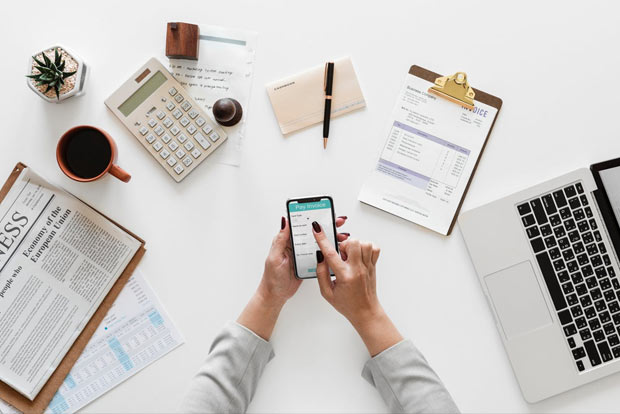Begin typing your search...
Be a smart spender with your smartphone
Are you someone that likes living life on the edge, from salary to salary, buying something as and when you set eyes on it, without worrying about your savings, and a "dekha jayega" attitude? That may seem cool -- but it's also a short cut to financial disaster.

Mumbai
Here are a lists five ways to ensure you don't go broke, ever.
* Download a money management app to track your expenses
If you have never been the type to track your expenses, now is a good time to start. You can download an app that tracks your spends and set a budget, keep a watch on your upcoming credit card and utility bill payments, as well as see how much you owe or have to get from others. This is the first step to getting your finances streamlined.
* Make a plan and set goals for yourself
Set short-term (a few months ahead) and long-term (a year and beyond) goals. It could be anything from taking up a new hobby like learning the guitar, to buying a new phone/laptop/camera, getting married, buying a new house or being debt-free by a certain date, and so on. Based on the plan, break it down into quarterly and monthly goals so you know how much to save, how much is safe to spend and so on. Having a plan will give you an overview and much better control of your finances.
* Set up an emergency fund
Once you're tracking your spends and have set goals, you know how much money you need to allocate to each of them. You would also get an estimate of your spending pattern and expenses for each month. Based on this, have an emergency fund in place that will take care of at least 6-8 months' worth of living expenses so that in case of a mishap or a loss of job, you don't go broke, and have something to fall back on. You can set it up so that a certain percentage of your salary/income each month is automatically transferred to this fund. It could be in a different bank account, a fixed deposit, or even a liquid fund -- and most importantly, it should be accessible easily and quickly when needed urgently.
* Set limits for your spend categories
Take a look at your spends in greater detail to understand where the money goes each month. Assign limits to each of these categories for the month and see how you're doing at the end of the month. This will give you an idea of your lifestyle and if you're spending more than you earn, as well as where you can cut down on unnecessary spends.
* Stay debt-free
Credit cards can be extremely useful -- for regular spends as well as during emergencies, and over time, with a good payment history, can boost your credit score too. However, if you're the type of person who cannot pay off credit card bills in full each month or who just pays the minimum amount due, stick to using your debit card or cash, or even a Line of Credit, which has a lower interest rate. Revolving credit on a credit card can be dangerous for your finances, and it can take you several years to repay the entire outstanding amount.
There will always be changes in situations, your current needs and requirements as well as your cash flow, so every 3-6 months, you should re-look at your plan and goals, and modify as needed to stay on top of your finances.
Visit news.dtnext.in to explore our interactive epaper!
Download the DT Next app for more exciting features!
Click here for iOS
Click here for Android
Next Story



